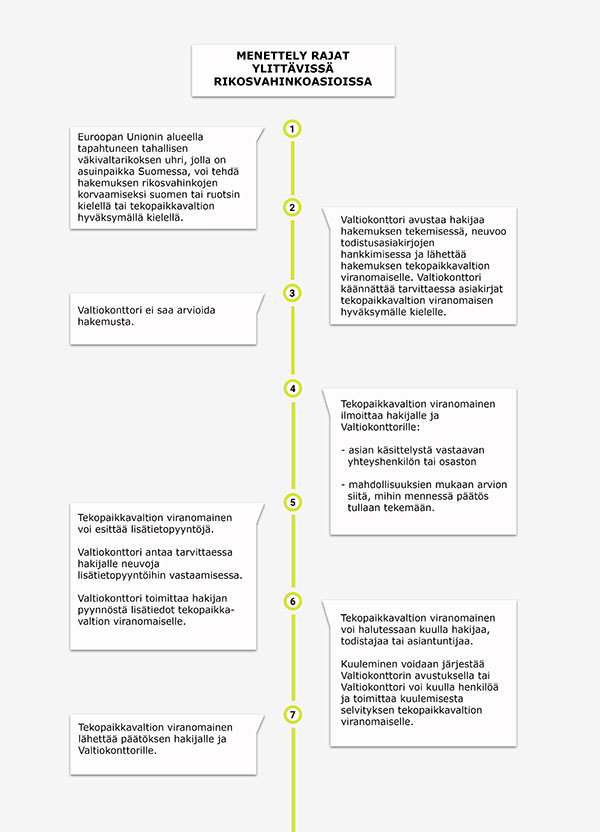Compensation to crime victims
The processing time for applications is currently around 6-8 months.
We are developing our practices and piloting a new procedure for processing compensation applications for crime victims. The pilot runs from 15 January to 31 May. Applications submitted during this period will be processed according to the new procedure. This may result in a shorter processing time for some applicants.



